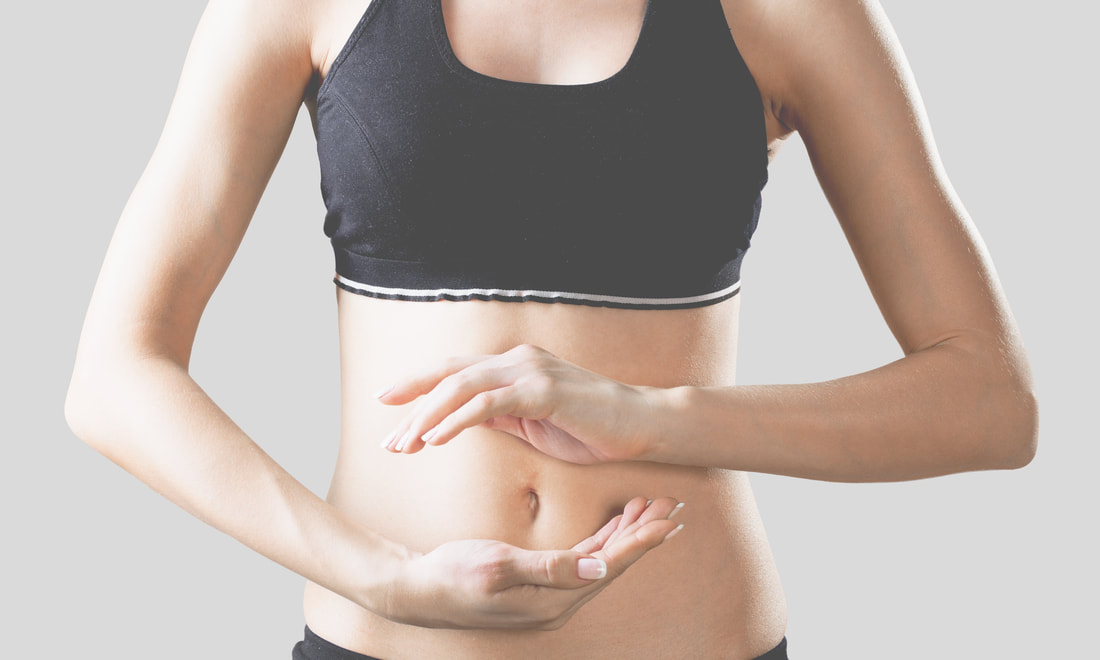|
1/5/2020 1 Comment 5 Steps to Better DigestionPretty much everyone has digestive distress at some point in their lives, for some it may be all the time! I can honestly say this is the number one issue I run into when helping people with their health goals. So much of our health relies on this digestion process, not just "Gut Health" but through all the steps of digestion. Below I am going to walk you through the steps of digestion and how we can maintain health in each one. I also want to mention that "gut health" or digestive health, as I like to say, is wayyyyy more complex than just this one blog post. I plan to do a series of these to really dive deep into all of the things we can do for digestive health. But this is the starting point that will get you on the right digestive track! ;) 1. Chewing your food properly This one is important. Chewing your food is the first part of digestion. I think lot of people overlook this, especially if you are in a hurry or you are talking a lot while eating a meal. This first step breaks down the food into pieces that are more easily digested, while saliva mixes with food to begin the process of breaking it down into a form your body can absorb and use. If you aren't chewing your food enough, it is harder for your body to break down to digest. This can cause indigestion, bloating, heart burn, and acid reflux. 2. Stomach Acid A lot of people have been misguided on this one and I'll explain why. Stomach acid is a digestive fluid formed in the stomach in aid of food digestion. It is composed of mostly hydrochloric acid which is designed to transform a large solid meal into a semi-liquid soup, among other things such as, absorption of vitamins and nutrients, destroying harmful bacteria or invaders, etc. When this it too low, it causes a lot of distress, such as excessive gas, boating, burping, indigestion, heartburn, IBS, diarrhea, or constipation. See, most people think when they have these issues that they have too much stomach acid, but when researched over acidity is almost never found, especially in those over age 35. The usual findings are under acidity. Most doctors will not test you for this and usually just prescribe an anti-acid drug, which can make thing worse in the long run! But you can increase your hydrochloric acid by eating a healthy diet and taking supplementation. Betaine hydrochloride is a nutritional supplement that has been used for over 100 years to safely restore normal gastric acidity and to support healthy gut function, they also help restore the digestive system, which enables better absorption of nutrients, especially minerals, folic acid, ascorbic acid, beta-carotene, and vitamin B12. **Try doing this at home Burp Test to see if you might have low hydrochloric acid. 3. Intestinal Health (small intestine) After reaching the stomach your food will then move onto the small intestine where the nutrients you consumed are digested and absorbed into your bloodstream. It is important to maintain a healthy diet with lots of good bacteria to protect the lining of the intestines for maximum nutrient absorption. You can do this by eating foods rich in fiber. This helps stimulate the muscle contractions that help the small intestine do its job. And by avoiding foods that cause inflammation and harm the intestinal lining. Be aware of high-fat diets, researchers have found that high-fat diets can cause nerve damage, which may cause muscle dysfunction in the small intestine associated with type 2 diabetes. 4. Healthy Organs of Digestion This is where you liver, pancreas, and gall bladder come into play. The pancreas releases digestive juices that help break down food into carbs, proteins, and fats. It also releases insulin to help regulate blood sugar. The liver creates bile, which is stored in the gallbladder, that is then sent into the small intestine to help break down foods containing fats. (Having sufficient hydrochloric acid, like I mentioned above, also helps stimulate bile production.) The Liver also cleanses and purifies the blood coming from the small intestine containing the nutrients just absorbed. So it is crucial that we keep our livers healthy and our blood clean. If you want more information on how to do that click here. 5. Intestinal Health (large intestine) Now what is left of the food you ate is handed over to the large intestine. The large intestine is where your stool is created and bacteria can ferment and break down some undigested food, absorbing electrolytes, vitamins, and water. Then emptying its contents into the rectum to eventually begin the process of elimination. It is important that we populate our intestines with good bacteria and healthy digestive enzymes, through diet and/or supplementation, to help the break down of our food and to keep this process moving easily. This all goes back to eating a whole foods diet with as little processed food as possible, taking the proper supplementation, lowering or eliminating consumption of alcohol, and maintaining an active and healthy lifestyle. Supplements that can aid the digestion process. (Make sure you get high quality supplements!)
Other Helpful Tips
I hope you found this helpful! To help get you started, click the button below for some healthy recipes.
1 Comment
1/16/2020 04:26:46 pm
Our body is our temple so we need to take care of it and the different foods that we are eating should be healthy for it will have an effect in the long run. We do not want to have any regrets in our life and we want to have happy moments. Moments that are truly precious and one of a kind. Let us read this for us to have a better digestion and we can avoid some consultations that are really serious to talk about.
Reply
Leave a Reply. |
CategoriesAll Breakfast Chia Pudding Coffee Desserts Digestion Gift Guide Gut Health Healthy Podcast Immune System Latte Lifestyle Marinara Sauce Miyoko's Cheese Review Oil Free Oil-Free Dressing Podcast Superfoods Tacos Traci Wolfe Vegan Cheese Weight Loss Recipes |


 RSS Feed
RSS Feed